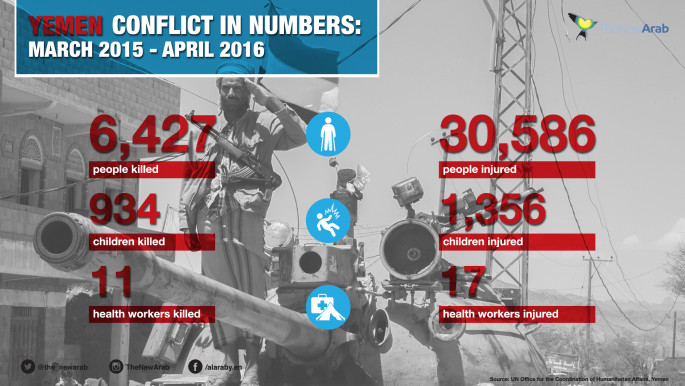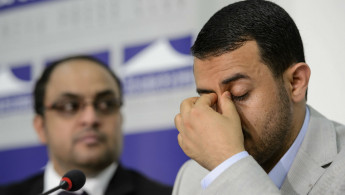Standstill in Yemen peace talks as government withdraws again
"After a month, the Saleh-Houthi group comes now and demolishes the talks by rejecting the references and other foundations such as the legitimacy," Abdulmalik al-Mikhlafi, the head of government delegation tweeted on Tuesday.
"I've asked the United Nations envoy to prevent the putsches from wasting more time and to ensure their commitment to the references before resuming talks."
After more than a month of negotiations, Yemen's warring factions have yet to make any solid progress in their quest for peace.
The government had previously suspended their participation from the talks on May 1 when Houthi rebels seized a military base north of the capital – a move seen as an escalation in the conflict while a ceasefire was in motion.
The talks resumed three days later when both delegations agreed to form a committee to investigate the attack on the governorate of Amran, leading to the "torpedo" of the talks.
The latest withdrawal comes as Saudi Arabia denies claims of committing war crimes in Yemen.
"The armed conflict in Yemen has been characterised by numerous violations of the laws of war by all sides, which have not been investigated nor have resulted in any redress for victims of unlawful attacks," Human Rights Watch [HRW] said on Wednesday.
It accused the Saudi-led coalition of launching "indiscriminate airstrikes" on civilian areas, and urged all parties to "support international investigations, transitional justice and victim compensation as key elements of any agreement."
But Saudi general, Ahmad al-Assiri, denied the presence of HRW workers in Yemen, saying "no one gets to Yemen without permission of the coalition."
Assiri added: "We regret any casualty... There is no intention to have those casualties in Yemen. We have family both sides of the borders. We have very deep relationships."
More than 6,400 people have died since the Saudi-led coalition launched a war on Yemen's Houthi rebels in the country.
"A mechanism should be put in place to investigate abuses, prosecute those responsible and assist the victims," urged Human Rights Watch's Middle East director Joe Stork.
 |
|





 Follow the Middle East's top stories in English at The New Arab on Google News
Follow the Middle East's top stories in English at The New Arab on Google News
![The UAE is widely suspected of arming the RSF militia [Getty]](/sites/default/files/styles/image_330x185/public/2024-11/GettyImages-472529908.jpg?h=69f2b9d0&itok=Yauw3YTG)
![Netanyahu furiously denounced the ICC [Getty]](/sites/default/files/styles/image_330x185/public/2024-11/GettyImages-2169352575.jpg?h=199d8c1f&itok=-vRiruf5)
![Both Hamas and the Palestinian Authority welcomed the ICC arrest warrants [Getty]](/sites/default/files/styles/image_330x185/public/2024-11/GettyImages-2178351173.jpg?h=199d8c1f&itok=TV858iVg)